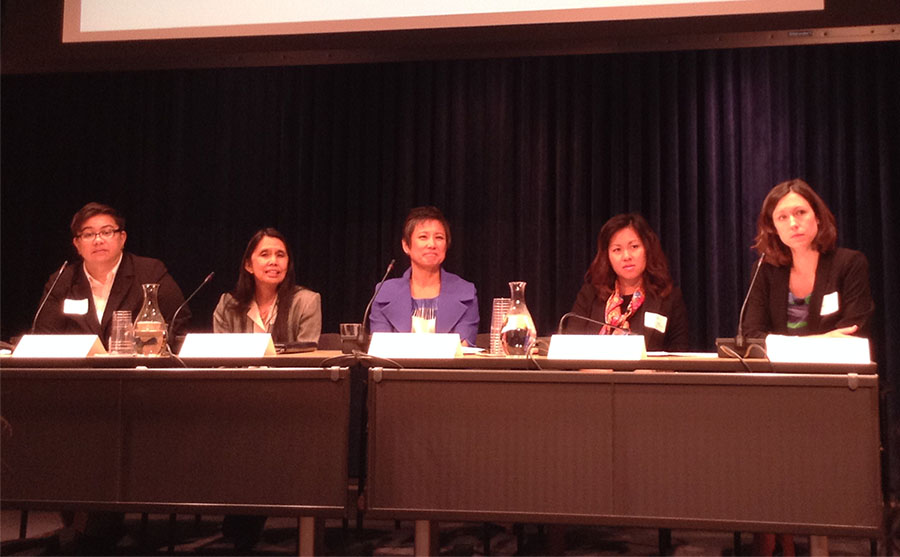WASHINGTON – Language and cultural barriers could create a challenge for Asian Americans who want to apply for health insurance under the Affordable Care Act, said advocates from the group Action for Health Justice.
The coalition was formed last June to help educate certain ethnic groups about signing up for coverage under the healthcare law.
Panelists at a Washington event Wednesday said that a lack of bilingual telephone operators and educational materials, coupled with low health insurance literacy among applicants, posed problems during the first enrollment session last year. They also pointed to confusion over how applicants must prove their immigration status.
The government offers web-based applications in English and Spanish, but English is not the primary language for 32 percent of individuals of Asian, Native Hawaiian and Pacific Island heritage.
“As we looked at demographics of Asian Americans, Native Hawaiians and Pacific Islanders alone, it was clear that the existing state and national outreach efforts were not going to be effectively reaching our communities,” said Kathy Ko Chin, president of the Asian & Pacific Islander American Health Forum, one of the four organizations comprising Action for Health Justice.
The group depends on a combination of federal and private grants, and partnered with over 70 community-based organizations in 22 states to give in-person assistance for those applying for health insurance.
Action for Health Justice says it has helped enroll 232,000 of the 1.9 million uninsured Asian Americans, Native Hawaiians and Pacific Islanders eligible for healthcare coverage. But the panelists believe more barriers lie ahead for the second enrollment session, which begins Nov. 15.
“It’s really hard to talk about healthcare reform or the marketplaces without materials for people to explain it in a simple, easy way,” said Doreena Wong, of the Asian Americans Advancing Justice in Los Angeles.
Panelists called for more funding from the federal government and private organizations to continue providing services to these populations.

